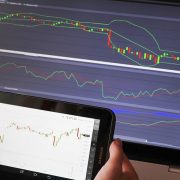
The futures market is a platform that offers the small time investor an option of using small investments of their money to control large amounts of products, including gold, currencies, and agricultural commodities.
A commodity futures stock is a legal contract to deliver, if you are selling, or to take delivery, if you are buying, of a specific commodity, index, bond, or currency at a predetermined date or price. A futures contract may include everything from a standard size amount of wheat, oil, or a country’s currency. The amount and date of delivery of the contract are notified in advance, though in almost all cases delivery is not taken as contracts are bought and sold for speculative or hedging purposes.
Futures are utilized by both those who use the actual commodity and by investors. For example, in June a farmer plants some corn, but doesn’t know what corn will be selling for in December. He can sell a futures contract for December and “lock in” the future selling price today to safeguard investment on crops. On the other side, investors can buy a futures contract if they believe the price of a security is going to appreciate, or they can sell a futures contract if they believe the price of a security is going to decline.
Futures and Options are Different
Futures are often thought of in the same category as options in online share trading portfolio. While they are both derivatives, in that they derive their value from some base security, there is one very important difference. While options give the right, but not the obligation to buy or sell the underlying security, a futures contract is a legally binding obligation to buy or sell that same commodity. Thus, while options limit your loss to the price paid for that option, futures trading could lead to a loss of your entire investment and more to meet that obligation.
Another difference between the futures and the equities markets involves the use of word margin. Although the contract sizes for currencies are large, an investor does not have to buy or sell a full contract. Rather, a margin deposit on the contract is maintained, which is actually a “good faith” amount of money to ensure your obligations to the full amount of the futures contract. Minimum margin requirements vary by broker, but are typically only a fraction of the contract’s total value, and are not related to the actual price of the contract involved.
Futures trades must be made through futures brokers, who operate both full-service and discount operations, and may be related to the stock brokerage that you already deal with. However, popular discount stockbrokers do not handle futures contracts. Here, you can download online share buying selling app.











